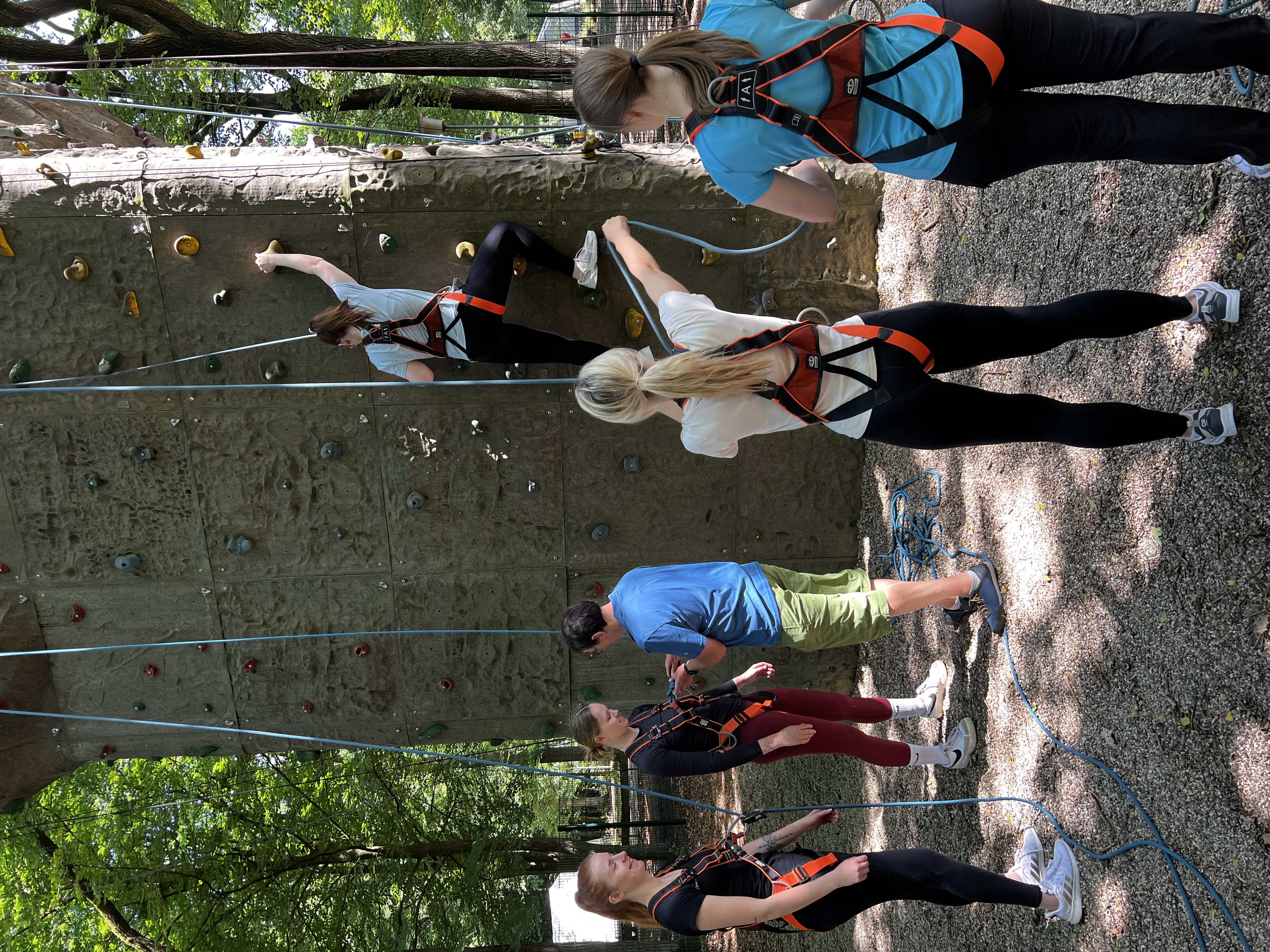Experiencing addiction prevention in practice: Master's students combine theory with practice and go climbing
The topic of addiction prevention is an integral part of health promotion and is therefore also an important topic in the Master's programme in Health Sciences and Management. Students learn how prevention strategies can be applied in practice, not only in theory but also in practice.

Skills that play a key role in addiction prevention – teamwork, mutual trust, taking responsibility and also confidently saying ‘no’ when one's own limits are reached – were something that students on the Master's programme in Health Sciences and Management were able to experience first-hand during a joint climbing project.
The climbing stations were designed in such a way that they could only be mastered as a team. While some students climbed the station, others secured them from the ground. It was the combination of activity and responsibility that made their joint success possible.
"Those climbing at the top must rely on the belay. Those acting at the bottom are responsible for the team. At the same time, everyone learns that it is perfectly okay to stop a task – whether out of uncertainty or fear. This “saying no” is an important part of addiction prevention, emphasises Prof. Dr Robert Renner, Professor of Health Promotion and Nutrition and programme director. The students themselves also describe the experience as valuable. In addition to the physical challenges, personal limits were recognised and openly communicated.
‘At first, I was really scared, but the group motivated me and gave me confidence, so I was able to overcome my fear. This experience has boosted my self-confidence,’ said one student. Through the climbing project, the students experienced how prevention works and acquired skills that will also be useful to them in their future careers.
